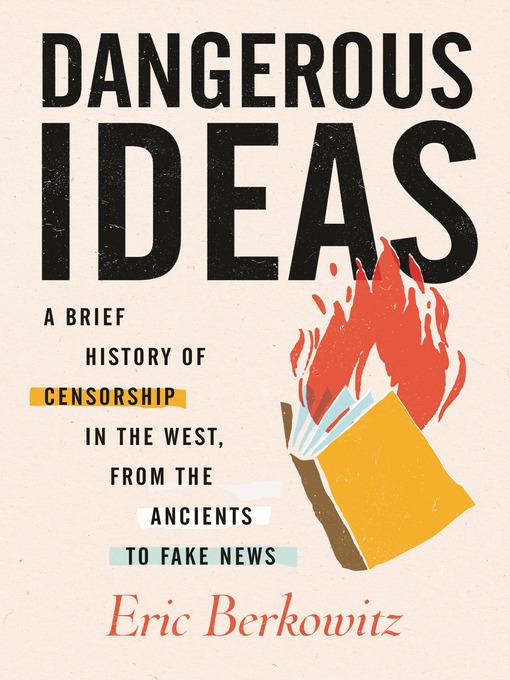
Dangerous Ideas
A Brief History of Censorship in the West, from the Ancients to Fake News
- اطلاعات
- نقد و بررسی
- دیدگاه کاربران
نقد و بررسی

March 15, 2021
A history of attacks on free speech. Lawyer and journalist Berkowitz offers a well-informed chronicle of censorship, from ancient times to the present, arguing persuasively that censorship does not work but instead makes ideas more effective by forbidding them. "Once transmitted," he writes, "an idea is not easily extinguished" despite fierce coercive power wielded to prevent, suppress, or punish expression. In the ancient world, some words, thought to have magical powers, were considered "so venomous" that they were banned. Athens allowed free speech in the agora but silenced thinkers such as Socrates, whose words were seen as polluting and his trial and death, a means of purification. Societies under stress--war, rebellion, class uprisings, religious dissent--often resort to censorship in the form of conflagrations: From Rome to Nazi Germany, many texts have gone up in flames. In the Middle Ages, the state quashed treasonous utterances by instituting public shaming; severed heads went on display as warnings. Beginning around 1450, the printing press, which circulated ideas quickly and widely, proved a bane to censors. Although, in 1670, Spinoza argued that free speech is a right in a free state, that principle has not been easily upheld. Soon after adopting the First Amendment, for example, the fragile new American nation passed a draconian sedition law. With examples of banned books such as Alice's Adventures in Wonderland and The Grapes of Wrath, Berkowitz underscores John Stuart Mill's contention that an idea that seems harmful one day might be beneficial on another. As much as he champions free expression, Berkowitz sharply indicts social media companies engaged in "surveillance capitalism," profiting by allowing racism, anti-Semitism, conspiracy theories, and disinformation to proliferate. Still, faced with this challenge, he reminds readers that "policing speech too aggressively risks exactly the kind of overbearing exercise of state power that spells the end of a free society." A timely contribution to an ongoing debate.
COPYRIGHT(2021) Kirkus Reviews, ALL RIGHTS RESERVED.




دیدگاه کاربران